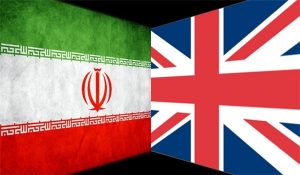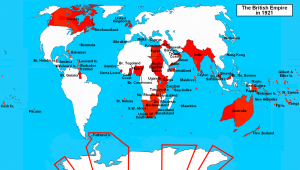The British Labour Party Uses Humanitarian Assistance as a Means of International Diplomacy In the Twenty-First Century
The British Labour Party’s Attitudes and Policy Ideas Towards the Using of Humanitarian Aids as a Means of International Diplomacy in the Twenty-First Century
Having examined the roots of the British Labour Party’s attitudes and policy ideas towards the using of humanitarian aids as a means of international diplomacy, we shall now proceed with the British Labour Party’s attitudes and policy ideas regarding the use of humanitarian aids as a means of international diplomacy in the twenty-first century.
The two world wars each had a different impact on the British Empire. The First World War accelerated the ever-growing rise of the British Empire, as the defeated mandated territories of the enemies became entrusted to Britain’s care and also the relationship between Britain and her Empire stood its greatest test. This was demonstrated by the massive contribution that the empire nations made to Britain’s war effort. The white Dominions alone sent two and a half million soldiers to add to the five million British soldiers and fought the War alongside each other. Other Empire countries such as India and the Colonies in Asia and Africa also made a striking contribution by sending many troops to fight the War alongside the rest of the Empire. Consequently, the ‘British’ imperial power was not just the United Kingdom’s power; it was also due to the co-operation of the Dominions and all the contributions that the various Empire nations had made to win the First World War. In fact, the Cabinet Committee on defence co-operation was called the Committee of Imperial Defence.’ After the First World War, over a quarter of the world’s land surface and a quarter of the world’s population had been covered by the British Empire as opposed to the period from the turn of the century up to the 1914-18 war, when the British Empire had covered one- fifth.
The impact of the Second World War, however, was a turning point in the history of the British Empire. Britain survived the War of 1939- 45, together with her Empire, but at a heavy cost. The post- World War Two period was a new and changing world of demands and pressures placed on Britain from various directions. Although Britain’s Empire grew larger after the First World War and she emerged on the winning side against Germany, she had lost a sixth of her wealth in that war. The United States, on the other hand, not only turned out as a creditor rather than a debtor but also as a nation producing half the world’s manufacturing goods. This was not due to her population, size, and resources that she had acquired after her independence, which also, eventually guaranteed her supremacy. Additionally, although the Empire nations demonstrated a firm co-operation with Britain during the First World War, for some time, in fact since the late nineteenth century, there had been a growing movement towards economic and political independence among them, in particular, Australia, Canada, New Zealand, and South Africa. This was as a result of their own economic development which at last led to Britain granting them legislative control over their internal affairs, such as fiscal and trading policies as the nineteenth century came to an end.



